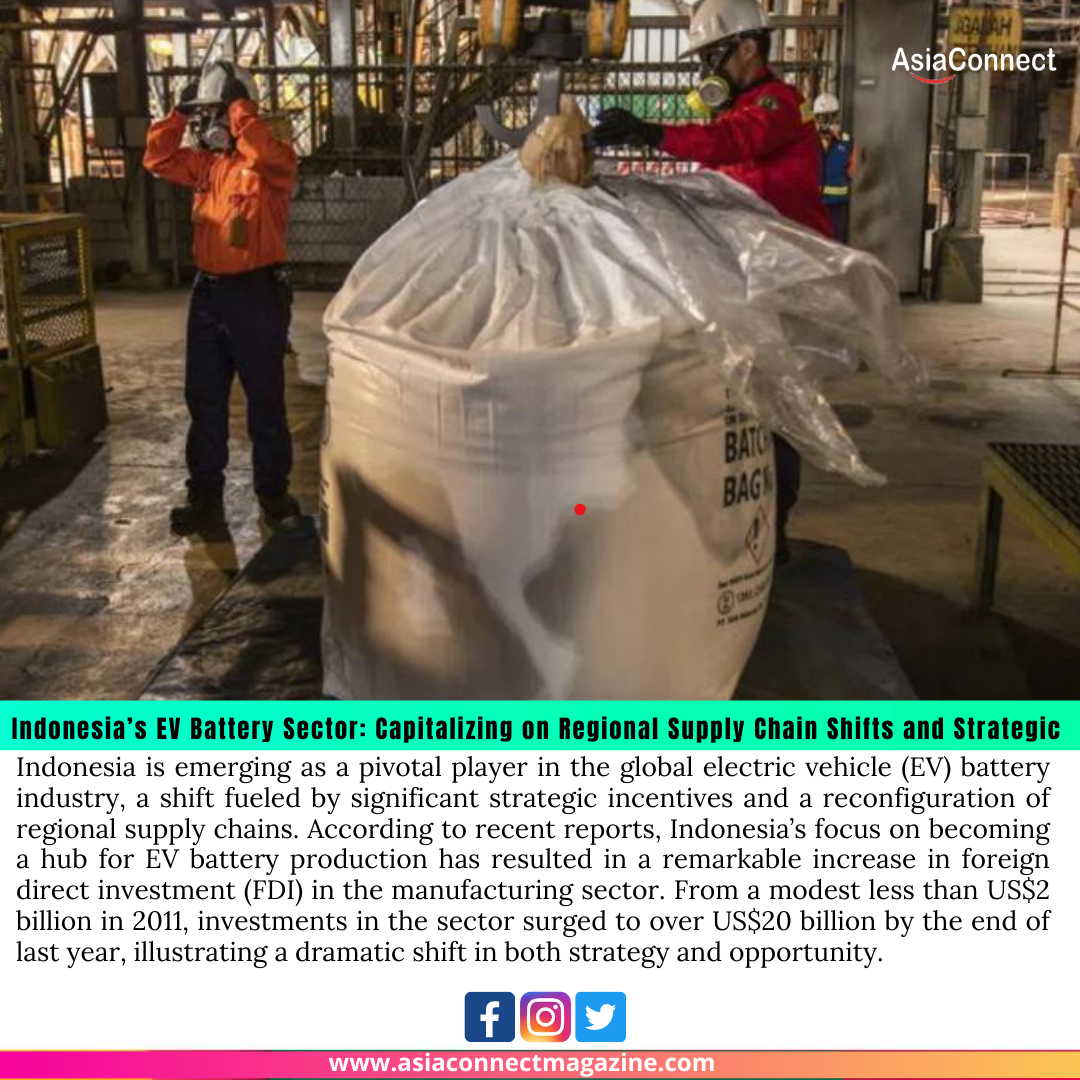Indonesia is emerging as a pivotal player in the global electric vehicle (EV) battery industry, a shift fueled by significant strategic incentives and a reconfiguration of regional supply chains. According to recent reports, Indonesia’s focus on becoming a hub for EV battery production has resulted in a remarkable increase in foreign direct investment (FDI) in the manufacturing sector. From a modest less than US$2 billion in 2011, investments in the sector surged to over US$20 billion by the end of last year, illustrating a dramatic shift in both strategy and opportunity.
The surge in investments can be attributed to Indonesia’s comprehensive and forward-looking policies aimed at fostering growth in the EV battery sector. Recognizing the potential of EV batteries as a cornerstone of the future automotive industry, the Indonesian government has implemented several strategic measures to attract international investment and boost domestic production capabilities.
One of the key factors driving this growth is Indonesia’s substantial reserves of nickel, a crucial raw material for lithium-ion batteries. The country holds some of the largest nickel deposits in the world, making it a strategic location for battery manufacturing. This resource advantage has positioned Indonesia as a critical node in the global supply chain for EV batteries, prompting international companies to establish operations within the country.
In response to this opportunity, the Indonesian government has introduced a range of incentives to attract foreign investors. These include tax breaks, streamlined regulatory processes, and infrastructure development projects aimed at supporting the burgeoning EV battery industry. The government’s commitment to creating a favorable investment climate has been instrumental in driving up foreign interest and securing substantial investments.
Furthermore, Indonesia’s strategic geographical location in Southeast Asia has added another layer of appeal for investors. The region is increasingly becoming a key market for electric vehicles, driven by growing environmental awareness and supportive policies across neighboring countries. By positioning itself as a manufacturing hub for EV batteries, Indonesia is well-placed to leverage regional growth and meet the rising demand for EV components in Asia.
The influx of foreign capital has not only bolstered Indonesia’s position in the global EV battery market but has also spurred significant advancements in technology and manufacturing processes. International companies setting up operations in Indonesia bring with them advanced technologies and best practices, contributing to the overall growth and modernization of the local industry.
The expansion of the EV battery sector also aligns with Indonesia’s broader economic and environmental goals. The country aims to reduce its reliance on fossil fuels and transition towards more sustainable energy sources. By investing in the EV battery industry, Indonesia is taking a significant step towards achieving these goals, while also creating job opportunities and fostering economic growth.
Looking ahead, Indonesia’s focus on the EV battery sector is expected to continue driving investment and innovation. As global demand for electric vehicles grows, the country is poised to play a crucial role in the supply chain, capitalizing on its resource advantages and strategic investments. The ongoing development of infrastructure and supportive policies will likely further enhance Indonesia’s position as a key player in the global EV battery market.
In conclusion, Indonesia’s significant rise in foreign direct investment and its strategic positioning in the EV battery industry reflect a broader shift in regional supply chains and manufacturing strategies. With its resource advantages, favorable policies, and growing market demand, Indonesia is set to become a central hub in the global electric vehicle ecosystem, driving future growth and innovation in the sector.





